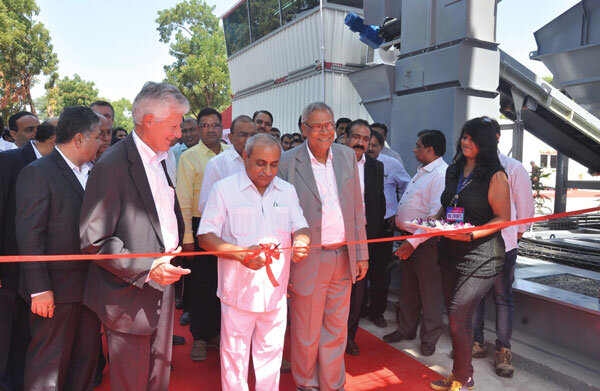Is your subsidiary in India not achieving the results you expected in terms of turnover, profit or customer reach? Then it's time to take a hard look at your organisation's HR policies in India. "HR is the driving force behind a successful Indian entity," says our expert Deepmala Datta.
A survey we conducted among 100 companies with an entity in India revealed that 42% consider finding and retaining suitable staff the biggest challenge. 61% of these companies indicate that good, local HR policies are the solution to this problem, yet only 20% of them actually have an HR team in India. "A good HR policy is an under-appreciated issue among Indian subsidiaries of European companies," says Deepmala. "I have assisted hundreds of companies in finding suitable staff, but never has the HR team from the head office travelled to India to participate in such an interview process. Many companies see it as a by-product, when in fact it is the driving force behind a successful business in India."
Focus on talent retention
"I have a very controversial view on turnover," Deepmala says. "I like turnover because it gives a company a chance to bring in an employee with better skills than his predecessor. Of course, it depends on which positions have the highest turnover. If they are critical positions, high turnover is very problematic for the results that a company can achieve." It is therefore important, she says, for the local HR department to identify which skills, positions or people the company cannot do without. "Instead of wasting all your energy and a lot of money on keeping 90% of your employees on board, it is smarter to focus on the most important talents, about 20% of the organisation. Despite the fact that a good salary is essential to retain an employee, Indian employees, like their European counterparts, are no longer satisfied with just a pay rise, but want to develop professionally and personally. Therefore, make sure you have appropriate HR policies in place that offer growth opportunities to these talents."
Lack of structure
Is your Indian entity stagnating in growth, but you are not questioning your business strategies? Then, according to Deepmala, it is good to check whether everyone in the company is in the right place. "When a company comes to IndiaConnected with such a problem, we start with a corporate restructuring process. We take assessments of the employees in key positions within the company and conduct interviews with all employees. This is the only way we can find out what the underlying problem is that is causing the growth to stagnate. One problem I often encounter is a lack of structure. There is a big cultural difference between India and Europe that needs to be kept in mind: hierarchy. In India, we have a strong need for a clear leader. If there isn't one, employees tend to build their own power structure, which doesn't always work in favour of the company."
How an imbalance in the company structure resulted in a hostage director
"I have been involved in an extreme example myself," Deepmala says. "I was sent to a factory in Mumbai where the staff had been on strike for three days. The head office in Europe had no idea why and could not get in touch with the managing director. Once I arrived, I found a man standing guard at the door of the managing director's office. I had to bargain with him to get access to the office and once inside I understood why. The workers of the factory had been holding the managing director hostage for three days. After many talks with the strikers, I came to the conclusion that the problem was actually very simple and that there was absolutely no need to go on strike to solve it. But it had gotten so out of hand, because the manager was not a good match for the position. He had been chosen for his impressive CV, but had no experience of managing such a large group of workers, let alone factory workers. If the HR team had checked for these skills when recruiting the manager, this misery could easily have been avoided."
HR as a sparring partner of management
HR should not be treated as an administrative department. "We have touched on it several times, but the success of a company depends on its people. My advice for any company with an Indian entity is to be smart about costs and hire only one senior HR manager. This HR manager should have a strong position in the company, where he or she can not only intervene and handle abuses in the right way, but also give guidance to the management. In addition, this HR manager must be a sparring partner of the executive. After all, future objectives can only be realised with the right people in the right places. The HR manager can not only ensure that the right people are retrained and moved on, but can also recruit new suitable staff with these future objectives in mind."
Common mistake
"Many companies choose to start with one agent or manager and then also make them responsible for building a team once the entity starts to grow," Deepmala explains. "That doesn't work well in many cases. What we often see is that European companies choose their first agent or manager based on his past success, but don't take into account how he was able to achieve those successes. Is that all to his credit or did he have a support team?"
In almost all cases, it is the latter, according to Deepmala. "Such a manager or agent therefore embarks on a very tough trajectory in a start-up company, in which he is completely on his own and not performing at his full capacity. This is often already visible in the results, but is attributed to the fact that the entity is in the start-up phase. As soon as this manager can start hiring people, he will immediately choose former colleagues with whom he could work well in his previous work environment. They are the right choices for him, but not necessarily for the positions they will fill within the company. In addition, these employees are taken away from their current employer, which means a substantial increase in salary in their new job. I have seen situations where this practice led to the company selling more, but never making a profit." According to Deepmala, this situation can be avoided very simply. "Don't think lightly about HR, but dare to invest in it from the very beginning."



